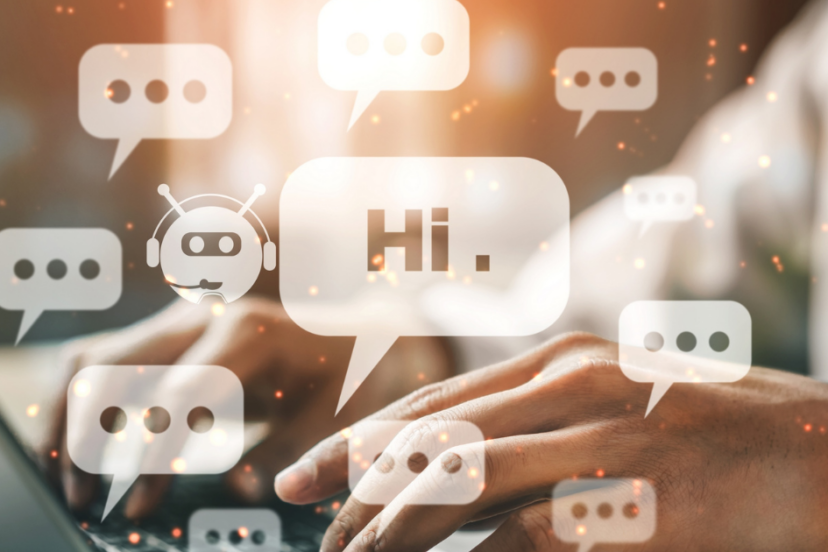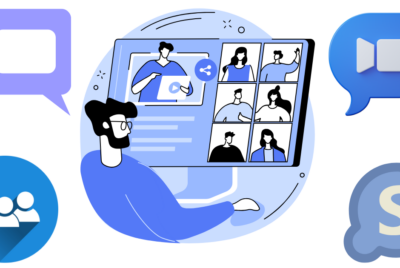How Artificial Intelligence In Communication Transforms Digital Conversations
In today’s fast-paced digital world, communication is the linchpin that connects us all. From instant messaging to virtual meetings, our lives are intertwined with digital conversations. But have you ever wondered how Artificial Intelligence in communication revolutionizes our online interactions?
In this article, we will embark on an exciting journey to explore the profound impact of AI on modern communication. We’ll uncover how AI changes the game, making our digital conversations more innovative, efficient, and personalized.
Buckle up as we reveal the ways it’s shaping the future of how we connect and communicate. This blog is your gateway to understanding the power of AI in modern communication. So, let’s dive in and discover how AI transforms how we converse, one chat, message, and email at a time!
Why Communication Is Crucial
Communication is the cornerstone of human interaction and society’s bedrock. The glue binds us together, allowing us to share thoughts, ideas, and emotions.
- Building Relationships: Effective communication is the foundation of any strong relationship, whether it’s with family, friends, or colleagues. It fosters trust, understanding, and empathy, making it easier to connect with others on a deeper level.
- Problem Solving: Communication is the primary tool to address issues and find solutions. Open and effective communication is vital for resolving conflicts and overcoming challenges, whether at home, in the workplace, or globally.
- Sharing Knowledge: Communication is how knowledge is passed down through generations. It’s the reason we have libraries, schools, and the internet. With it, progress and innovation would be significantly expanded.
- Personal Growth: Expressing our thoughts and feelings helps us understand ourselves better. It allows us to reflect on our experiences, learn from them, and grow as individuals. Self-awareness through communication is a path to personal development.
- Global Connectivity: In today’s interconnected world, communication transcends borders. It enables us to connect with people from different cultures, share diverse perspectives, and work together on global challenges like climate change and public health.
How AI Changes Digital Communication
Artificial Intelligence (AI) has significantly changed the digital communication landscape. These transformations have affected how individuals, businesses, and organizations interact and connect online. Here are several changes of Artificial Intelligence in communication:
Enhanced Customer Support:
AI-powered chatbots and virtual assistants have become integral to customer service. They can respond instantly to inquiries, resolve common issues, and even guide users through troubleshooting processes. This has improved the efficiency of customer support and reduced response times.
Personalization:
With the help of AI algorithms, users may expect more customized experiences. Whether tailoring email marketing campaigns, suggesting products, or curating social media feeds, AI helps make digital communication more relevant and engaging for users.
Language Translation:
AI-driven translation tools have broken language barriers, allowing people worldwide to communicate more efficiently. Translation apps and services can translate text and spoken language in real time, making global communication more accessible.
Voice Assistants:
Voice-activated AI assistants like Siri, Google Assistant, and Alexa have revolutionized how people interact with technology. Users can now perform tasks, get information, and control smart devices through voice commands, making communication more intuitive and hands-free.
Content Generation:
AI can generate written content like news articles, reports, and product descriptions. While imperfect, these AI-generated pieces can assist content creators, marketers, and journalists produce content more efficiently.
Data Analysis:
AI algorithms can examine vast amounts of data to extract valuable insights. This helps businesses understand customer behavior, preferences, and trends, enabling them to tailor their communication strategies accordingly.
Sentiment Analysis:
AI can analyze social media posts, reviews, and comments to gauge public sentiment. This information is valuable for businesses and organizations to assess their online reputation and adjust communication strategies.
Spam Detection:
AI is crucial in email and message spam detection. Machine learning algorithms can identify and filter out unwanted or malicious content, ensuring users receive cleaner and safer communication.
Content Moderation:
AI-powered content moderation tools help social media platforms and websites detect and automatically remove inappropriate or harmful content. This contributes to a safer and more positive online environment.
Predictive Typing:
AI-driven predictive text and autocomplete features in messaging apps and email clients assist users in composing messages more quickly and accurately.
Video Communication:
AI can enhance video communication through background blur, noise reduction, and automatic transcription. This improves the overall quality of virtual meetings and conferences.
Accessibility:
AI-driven technologies, such as speech recognition and text-to-speech synthesis, have made digital communication more accessible to individuals with disabilities, ensuring inclusivity in online interactions.
10 Popular AI-powered Communication Platforms
Here are some of the popular AI-powered communication platforms up to that time:
1. Zoom:
This widely used video conferencing platform incorporates AI for features like background noise cancellation, automatic transcription, and virtual backgrounds. It also uses AI to enhance video quality and facilitate communication.
2. Microsoft Teams:
Microsoft Teams, part of the Microsoft 365 suite, uses AI for features like automatic meeting transcription, chatbots, and integrations with virtual assistants like Cortana. It also provides real-time language translation capabilities.
3. Slack:
Slack is a collaboration platform that employs AI to enhance team communication. It offers suggested replies, automated reminders, and app integrations that leverage AI to streamline workflows.
4. Cisco Webex:
Cisco Webex integrates AI for noise suppression, background blur, and transcription services. It also offers virtual backgrounds and real-time language translation to improve communication.
5. Google Meet:
Google Meet utilizes AI for noise cancellation, real-time captioning, and automatic scheduling. Google’s AI also helps enhance video quality and overall meeting experience.
6. IBM Watson Workspace:
IBM’s AI-powered communication platform, Watson Workspace, combines messaging, collaboration, and task management with AI-driven insights and natural language processing.
7. HubSpot:
HubSpot offers a CRM platform with AI-powered marketing automation, chatbots, and email marketing tools that enhance customer communication and engagement.
8. Intercom:
This customer support and communication platform uses AI-powered chatbots and messaging tools to improve customer interactions on websites and apps.
9. Zendesk:
Zendesk offers customer service and support solutions incorporating AI for features like automated ticket routing, sentiment analysis, and chatbots to improve customer communication.
10. RingCentral:
RingCentral provides cloud-based communications solutions for businesses, including video conferencing, team messaging, and phone systems, with AI-driven features for improved collaboration.
Conclusion
In summary, Artificial Intelligence In Communication has revolutionized how we chat and connect online. It’s like having super-fast chat helpers, personalized recommendations, and even language translators.
The future is exciting! AI will get even better at guessing what we want and creating stuff for us. So, prepare for a future where AI makes our online chats smoother and more personal.
AI is changing how we talk online, and it’s here to stay. So, embrace it, stay mindful of the ethics, and look forward to a digital world that’s smarter and more tailored to you.




